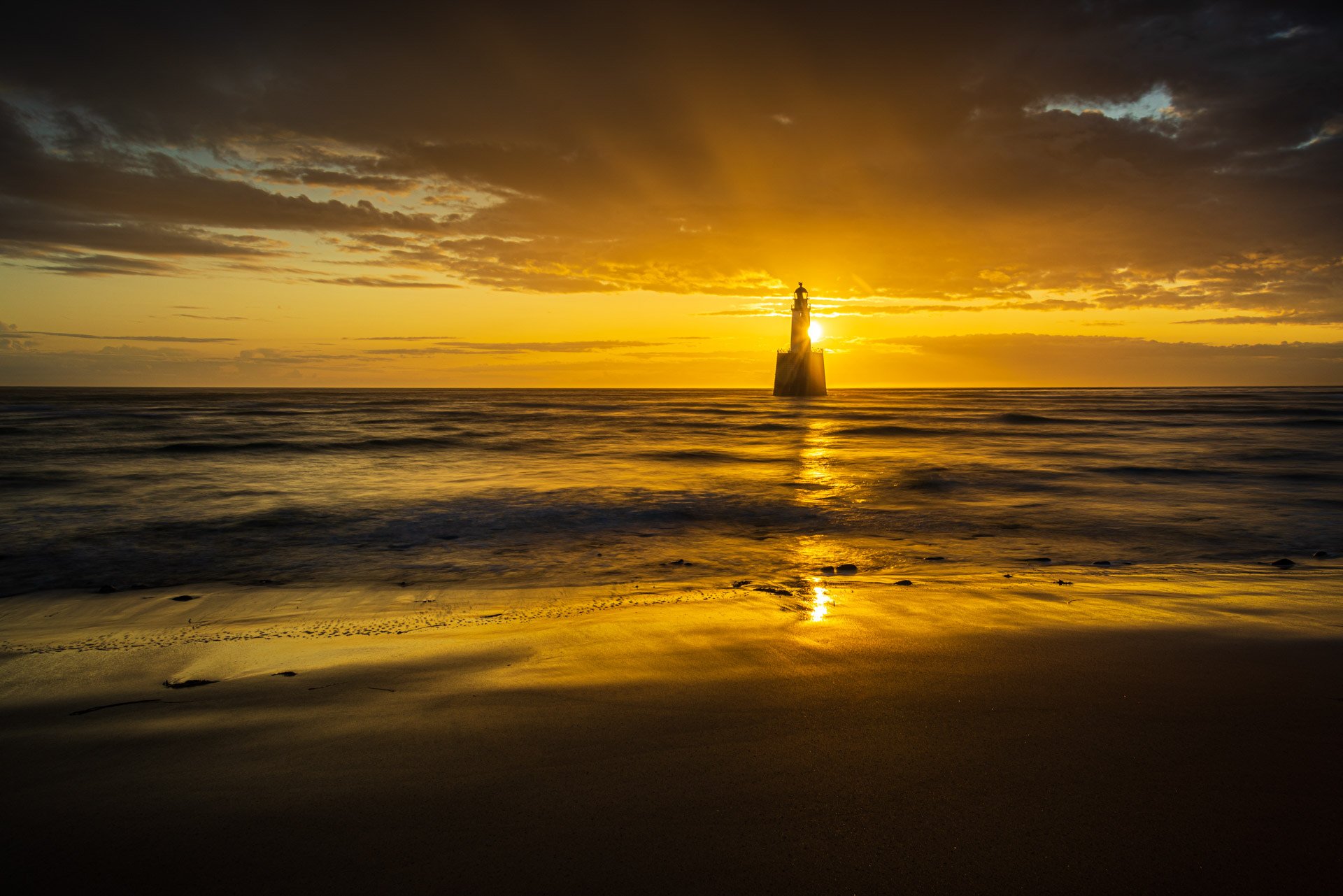Going Public
The 1% Chance explores themes of hope, wellness and discovery in the context of MND / ALS. This article is for informational purposes only and does not construe medical advice. The author is not a healthcare professional. Please consult a healthcare professional about your own healthcare needs.
I shot this sunrise at Rattray Head Lighthouse a few years ago. You can see a behind the scenes video below.
Transcript:
Hi, and welcome to The 1% Chance, a minipod exploring themes of hope and wellness in MND. My name is Graham Dargie - I’ve been living with MND since 2023.
Well, a couple of weeks ago, I posted on Instagram about my diagnosis for the first time. It was over 2 years since my symptoms started, 18 months after my diagnosis and 2 months removed from publishing my book.
I’ve always been happy to deal with the situation privately, knowing that anyone who really needed to know - my family and closest friends - were already in the loop. The book wasn’t meant to gain me publicity - it was made for the small number of people who find themselves facing a diagnosis of MND. I figured, the only people who seek out MND content are those who really need it, so I didn’t think fanfare was necessary.
So, why go public now?
On this journey, I’ve learned so much about MND and the culture around it. The established narrative speaks of hopelessness, inevitability and decline. I can vouch for the brutality and relentlessness of the diagnosis, having experienced some profound losses in the past 2 years. Instinctively, however, I rebelled against the standard storyline. I knew from lived experience that where I place my belief and intention has great power. My choice was to align myself with capability, not loss and my headline intention became - wellness without limits. In fact, this wasn’t really a choice at all - it was a deep conviction.
MND was presented to me as an unsolvable problem; an unbeatable foe. Hope should be yielded and your energy should go into raising awareness and campaigning to fund future research. This culture made me feel overlooked; even abandoned by a system I was looking to for help.
MND is complicated. It is hard to beat. There is no medical cure. I don’t claim to know everything about MND or to have all the answers - but one thing I’ve learned is that it is not unbeatable.
It’s not widely known but there are over 60 confirmed reversals of this condition, as documented by Dr Richard Bedlack of Duke University (and who knows how many have gone undocumented?). Dr Jeffrey Rediger’s groundbreaking work on spontaneous remissions adds further weight to the idea that some prognoses may not be as final as they first appear while Dr Ellen Langer’s body of work on mind-body unity highlights that there is much more uncertainty than we realise when it comes to health outcomes. All of this, plus my basic biological understanding of how the disease works, gave me a glimpse of hope amidst the darkness.
My way of thinking was out of step with a lot of what I’d encountered in the wake of my diagnosis. I really hate conflict and confrontation so at a time when I’m already dealing with so much, I was hesitant to create a situation where I might be at the centre of controversy. But, I felt strongly that the established narratives around MND need to be challenged.
Awareness, drug trials, and research are all vital to help people who are diagnosed in the future, and this work must continue. Pioneering scientists with a much deeper knowledge than I have will one day change the landscape of this diagnosis. But I believe we can do better to help people living with MND today. When an overwhelming enemy force invades a neighbouring country, do we expect the smaller nation to eschew resistance in fear of raising ‘false hope’? Or do we expect the defending nation to ‘fight them on the beaches’?
MND is a multi-pronged assault and we can help people strengthen their defences against it. A ground-up, health-building approach is needed, including tailored nutrition, mindful use of supplements and adaptogens, light exercise, physiotherapy, mindfulness techniques, talking therapy and more. It’s a lot of work, but isn’t a 1% chance of improving things worth fighting for? All of this could be overseen by an integrative practitioner or, better still, the patient themselves could head-up their own care. You won’t find anyone with higher motivation - yet we lack the information and support.
This approach isn’t a cure, but we shouldn’t allow the search for a cure for those diagnosed in the future to take our eye off doing what is right for people who, instead of dying from, are trying to live with MND today. Without a better course of action, desperate people will look for silver-bullet solutions to a problem that clearly requires a multifaceted approach.
I’m not naive enough to think that my voice alone - whether here, on Instagram or through my book - will prompt the changes I’m talking about. Yet, with all I’ve experienced, all I’ve learned - keeping quiet felt…wrong. When people of conviction stay silent, broken systems go unchallenged and flawed solutions - however well-intentioned - become embedded. If by speaking out, I can somehow contribute to the understanding of this disease and help to change the narrative around it, then maybe everyone affected by MND can move a little closer to the 1% chance I’m seeking.
I stand with you.
Thanks for listeningI And remember—this podcast is for informational purposes only and is not medical advice. I’m not a healthcare professional. Please consult a qualified professional for support with your healthcare needs.
